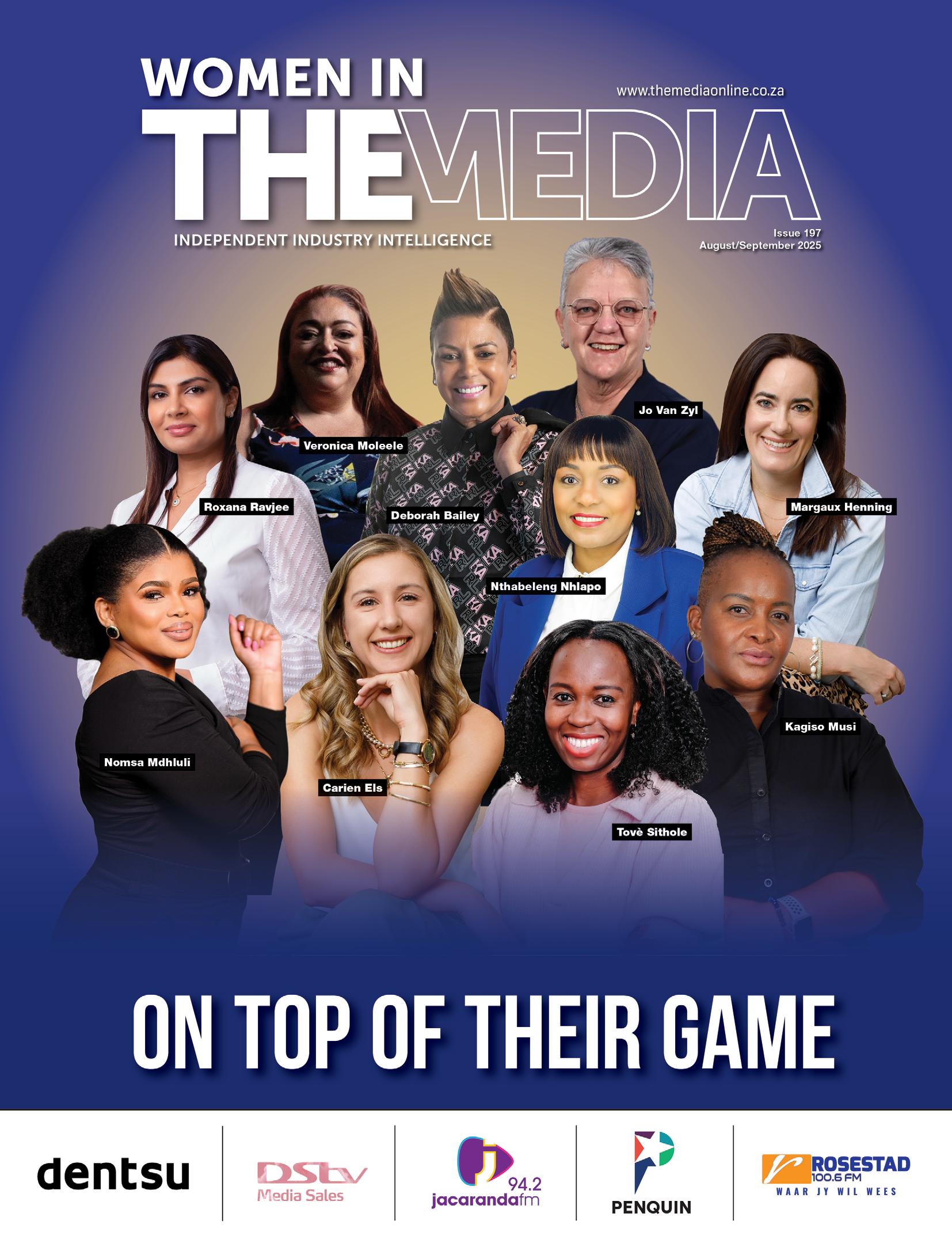
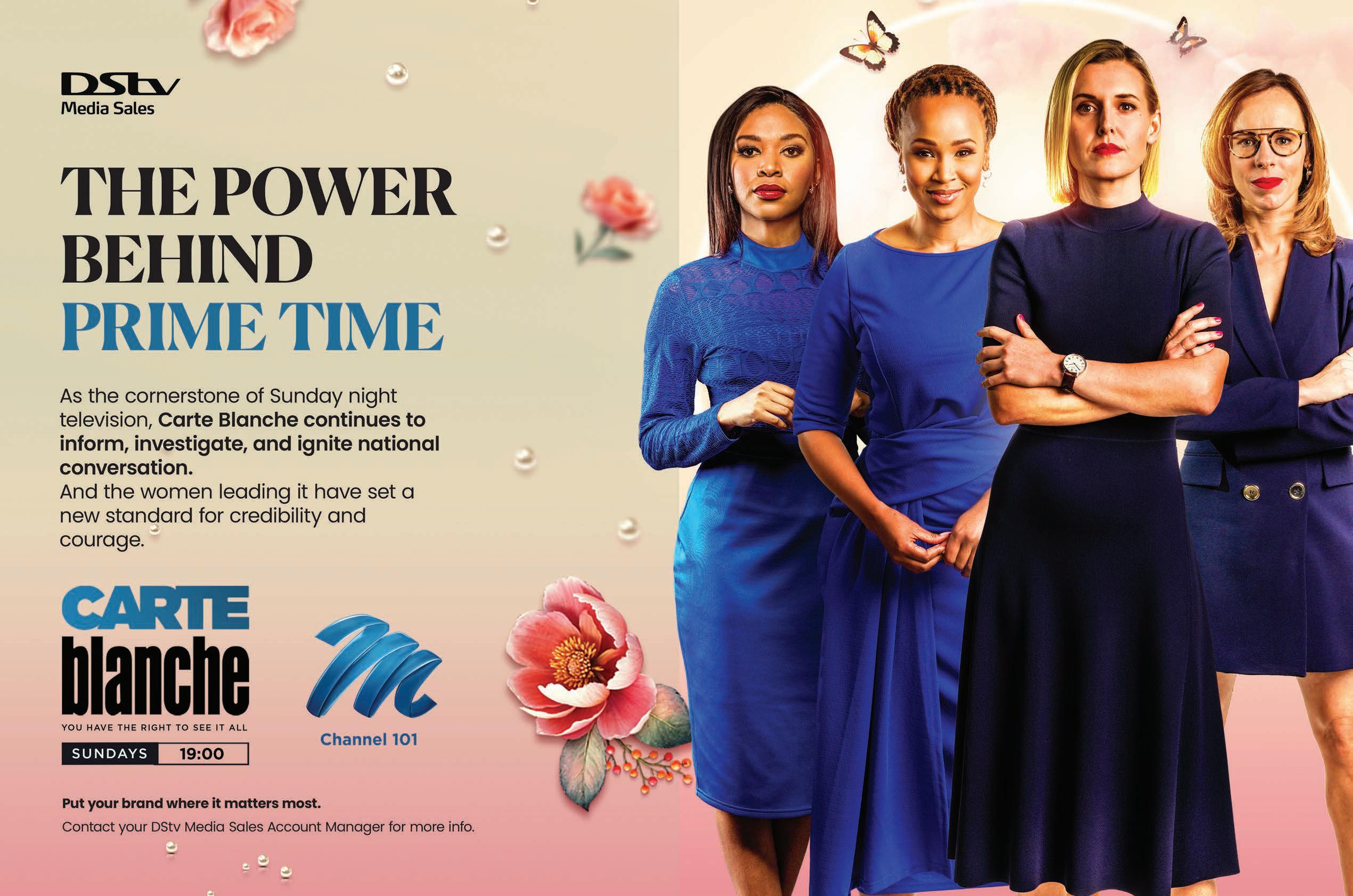





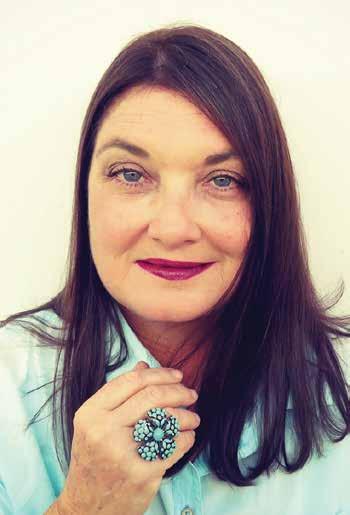
One thing is crystal clear: mentorship and sponsorship of young women entering the media profession is absolutely vital. From journalism and media owners to media agencies and on to creative advertising shops, mentoring is where the magic of empowerment begins.
On a cold Cape Town winter’s evening, I made my way to the Silo district of the V&A Waterfront for the graduation of the second crop of dentsu School of Influence (dSOI) candidates. There they were, glamorous and groomed, cellphones clicking, every stylish selfie perfectly composed.
But that was just the surface. Sitting beside me was one of the 2024 graduates, a young woman from Saldanha who now works for dentsu’s influencer division after graduating from the dSOI. Two years ago, she couldn’t have dreamed of having such a career. It was a life-changing experience. And she’s now living a new reality.
Three of the 2025 dSOI graduates and their mentors share their stories in this edition of Women in The Media. The mentees talk of the lessons they’ve learned, the confidence in their new abilities and their futures. For the mentors, the satisfaction of watching their charges flower and grow and learn to own their space is what keeps them inspired.
We have more on this theme. Farah Wael, director of advocacy and engagement at WAN-IFRA Women in News, outlines how the WIN Guild pledge contains concrete plans to implement structured mentorship programmes in their newsrooms, to formalise succession planning and adapt successful models from their peers to their organisational contexts.
IMA agency’s Michelle Lourens was this year’s Open Chair candidate to attend the Cannes Lions Festival of Creativity. Open Chair was founded by Suhana Gordhan and Fran Luckin back in 2017 to connect young women with established professionals and create a supportive space for growth and leadership within the industry.
Founders of Ko.Kreate, Koketso Masisi and Kgothatso Maditse, write about creating a community of women in advertising to tackle the ongoing challenges, from the pay gap to being penalised for being a mother. Their stories are a powerful reminder of the power that lies in collective action.
Thank you to our contributors and our commercial partners for once more making this issue of Women in The Media one to be proud of.
The Media. Got to love it.
Glenda
www.themediaonline.co.za
Arena Holdings (Pty) Ltd
Hill on Empire, 16 Empire Road (cnr Hillside Road), Parktown, Johannesburg, 2193
Postal Address: PO Box 1746
Saxonwold, Johannesburg 2193
Telephone: +27 11 280 3000
Editor: Glenda Nevill
glenda.nevill@cybersmart.co.za
Content Manager: Raina Julies rainaj@picasso.co.za
Copy Editor: Brenda Bryden
Content Co-ordinator: Natasha Maneveldt
Contributors: Carien Els, Michelle Lourens, Kgothatso Maditse, Nosipho Malinga, Lerato Mapitsa, Koketso Masisi, Zamile Ngwenya, Lisa Nyamane, Mia Tess Smith, Liezl Vermeulen, Farah Wael
Head of Design: Jayne Macé-Ferguson Senior Designer: Mfundo Archie Ndzo
Sales Manager: Tarin-Lee Watts wattst@arena.africa +27 79 504 7729
Production Editor: Shamiela Brenner
Advertising Co-ordinator: Johan Labuschagne
General Manager, Magazines: Jocelyne Bayer
Copyright: The Media. No portion of this magazine may be reproduced in any form without written consent of the publisher. The publisher is not responsible for unsolicited material. The Media is published by Arena Holdings. The opinions expressed are not necessarily those of Arena Holdings. All advertisements/ advertorials have been paid for and therefore do not carry any endorsement by the publisher.
Bottom from left: Nomsa Mdhluli, Carien Els, Tovè Sithole, Kagiso Musi
Middle from left: Roxana Ravjee, Deborah Bailey, Nthabeleng Nhlapo, Margeux Henning
Back from left: Veronica Moleele, Jo van Zyl
Returning from Cannes as South Africa’s Open Chair candidate, an inspired Michelle Lourens is determined to be braver in her ideas and bolder in how she tells stories.
04
Founders of Ko.Kreate, creative director duo, Koketso Masisi and Kgothatso Maditse, say behind the glossy campaigns, the reality for women in advertising remains sobering.
08
Dentsu School of Influence mentors prepare the next generation of influencers and change-makers with support from skilled experts in the industry.
09
Three of the recent crop of dentsu School of Influence graduates share the value and lessons they have learned from intentional mentoring.
Women in News has launched the WIN Guild, a network of senior women editors and publishers from Africa, the Arab Region and Southeast Asia, to transform individual influence into collective power, writes Farah Wael.
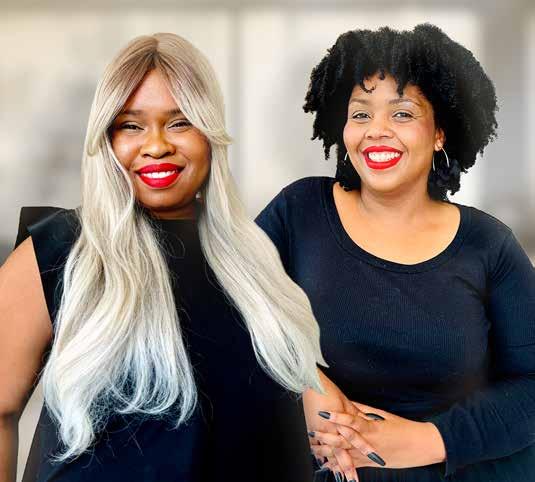
A company culture that is deliberate about creating an environment where women not only occupy seats at the table, but also pull up extra chairs for others, builds careers and shapes futures.
24
It is so easy in a competitive economy to fall prey to fear, and to try to hold on tightly to the whole pie, writes Carien Els, who believes collaboration is a competitive advantage.
25
When the crown is borrowed, it can be lost, but when we come together to build the castle, we create something lasting, something no one can take away, says Lerato Mapitsa.
As founder of Hotwire Strategic Marketing, Deborah Bailey is reshaping how hospitality, retail and property brands connect, grow and make lasting impact.

12
Celebrating 25 years of brilliance and creative impact, Penquin attributes much of its success to marketing with intent and purpose.
16
Tovè Sithole, head of talent and brand at iTOO Special Risks, believes strategy isn’t just about hiring but about creating brand ambassadors who share your values and beliefs.
18
Dentsu South Africa celebrates the visionary women who are redefining the marketing industry.
22
Over 80% of Meta Media’s staff are women, strategic advantages they believe have shaped the agency’s growth and market position.
28
From an award-winning broadcaster to the founder of Tishala Communications, multi-award-winning PR Nomsa Mdhluli’s success is a testament to the power of storytelling.
30
Meet Jacaranda FM’s powerful and inspiring coterie of female presenters who bring warmth, humour and insight to the radio station’s programming.

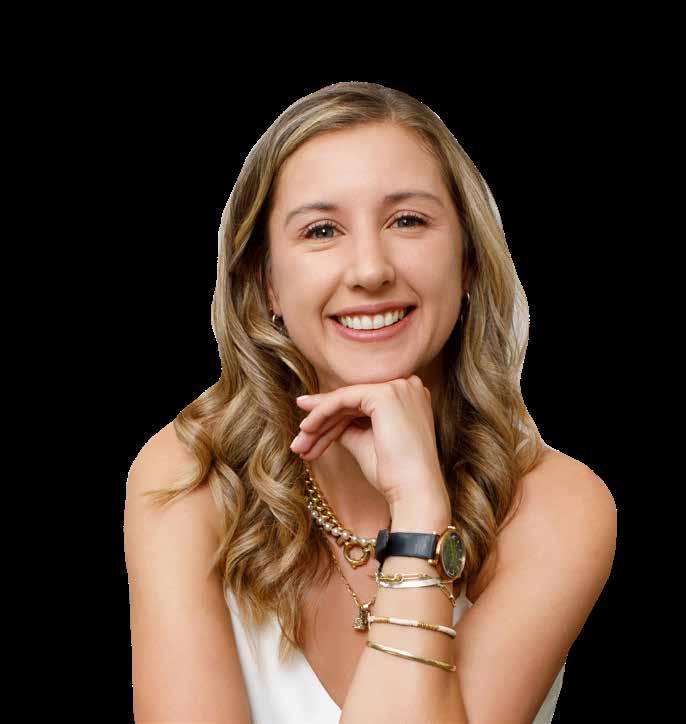
The conversation about women in advertising cannot be a seasonal topic, raised only during awards season or Women’s Month. It must be continuous, intentional and backed by action, write founders of Ko.Kreate, Koketso Masisi and Kgothatso Maditse.
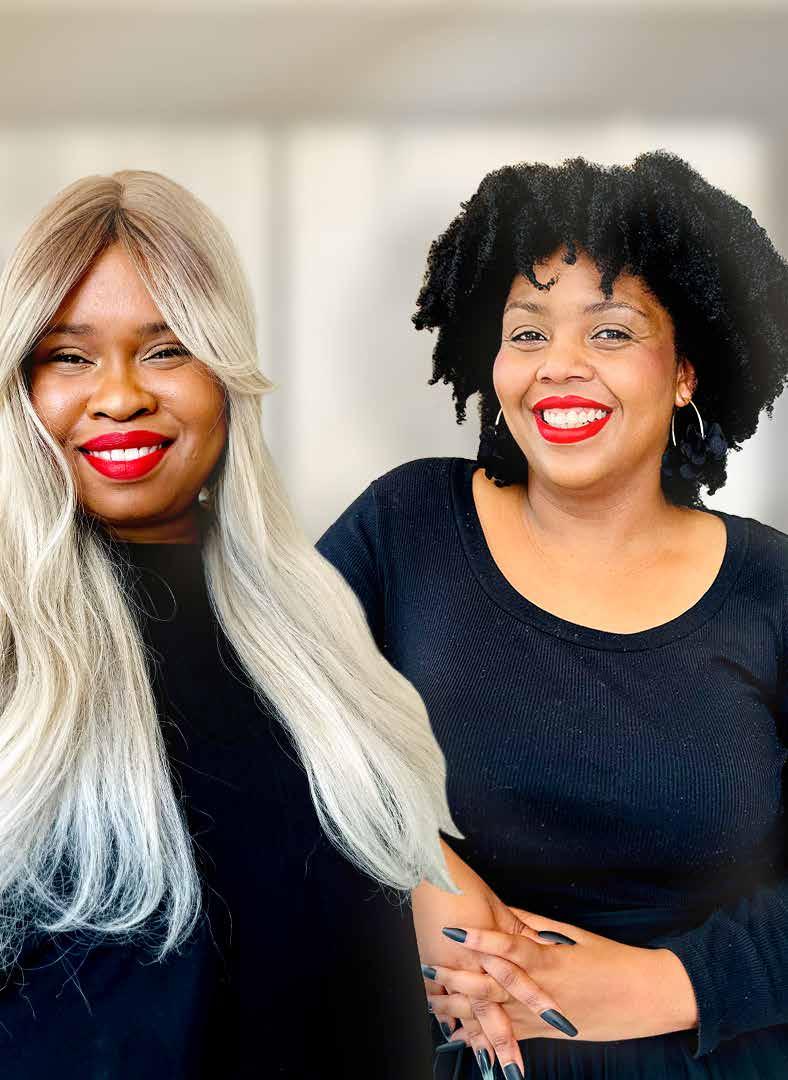
We’ve all heard the phrase: women need a seat at the table. But in advertising, and across many industries, it has become clear a seat is not enough. Representation without recognition and inclusion without influence is hollow. For many women in advertising, the table may be set, but the meal is often out of reach.
Advertising is a space that prides itself on creativity, disruption and new ideas. Like many women, we are attracted to the industry because we are ambitious, multiskilled and eager to contribute. Many of us gravitated towards the industry because it promised room to be ourselves and to shape culture.
And yet, behind the glossy campaigns and award-winning work, the reality for women, especially women of colour, remains sobering.
…BEHIND
THE GLOSSY CAMPAIGNS
AND AWARD-WINNING WORK, THE REALITY FOR WOMEN, ESPECIALLY WOMEN OF COLOUR, REMAINS SOBERING
The pay gap won’t close
One of the most stubborn challenges is pay. Underpayment or lack of fair compensation is still pervasive in advertising. Women now make up significant portions of agency teams, often carrying disproportionately high workloads due to understaffing and underscoping. We are the ones with
multiple certifications, diplomas and learnerships; the ones volunteering to help keep teams afloat. But our compensation does not reflect our value.
The pattern is familiar: women who feel underpaid and undervalued exit the industry or resort to job-hopping in search of increases they can’t secure where they are. The result? A revolving door that drains the industry of talent and leaves women perpetually starting over.
Motherhood still penalised
Childbearing and caregiving remain coded as liabilities instead of a human reality. Agencies may tout progressive policies, but on the ground, women are put in positions where they have to rethink and delay their family ambitions. Maternity leave policies that leave you unpaid if you fall pregnant within the ‘waiting period’, a disappointing fraction of your salary if you are paid and the requirement to remain in the company for one to two years after returning put women in an awkward position, or worse, stuck in toxic environments simply because they had children.
The implicit message is that motherhood is counterproductive and opposed to ambition, a message that ignores the resilience, empathy and problem-solving that parenthood actually sharpens.
without mentorship
Then there’s the leadership gap. While women are climbing into leadership positions, we are not always given the mentorship, tools or networks to thrive in them. Negotiating salaries, asking for promotions or even navigating how to lead in male-dominated spaces are often left to trial and error. Too many women are promoted for optics without the systemic support that would make their success sustainable. For women of colour, the challenge is even sharper. Equity appointments are sometimes treated as symbolic ticks rather than meaningful empowerment. Decisions are questioned. Authority is undermined. Ideas are dismissed until echoed by male or white counterparts, at which point they are suddenly brilliant.
‘WE DESERVE TO HAVE OUR VOICES HEARD, OUR CONTRIBUTIONS RECOGNISED AND OUR LEADERSHIP RESPECTED. ANYTHING LESS IS NOT INCLUSION, IT’S DECORATION’
And then there’s the matter of credit. Too many women in advertising carry the scars of work they poured themselves into – work that went on to win awards, boost revenue and earn prestige – without their names attached. Leaders they trusted to advocate for them instead claimed the spotlight. The result is not just professional frustration; it’s a form of betrayal that lingers long after the campaign has ended.
Yet, because of our lived realities, women bring invaluable insights to this industry. We know what it means to juggle. We understand the audiences that advertising seeks to reach because we are those audiences: mothers, daughters, sisters, consumers, professionals. Our ability to hold multiple truths at once makes us not only effective creatives and strategists, but also empathetic leaders.
The tragedy is that these perspectives are still treated as secondary when they should be central to shaping campaigns, strategies and organisations.
What needs to change
So, what will it take for a seat at the table to become meaningful? Three things feel urgent:
Equitable pay structures: agencies must put their money where their mouths are. Pay transparency, and accountability are non-negotiable if women are to stay and thrive in this industry.
Real support for working mothers: parental leave, flexible working and re-entry programmes need to be lived realities, not just policy statements. We cannot call ourselves an industry of innovation while clinging to outdated ideas of what leadership and ambition look like.
Mentorship and sponsorship: women in leadership need more than titles.
They need mentors who share tools for negotiation, growth and resilience. They need sponsors who actively open doors, not just cheer from the sidelines.
This is why initiatives like Ko.Kreate exist. Born from the frustration of misrepresentation – and from navigating our own challenging leadership journeys – Ko.Kreate is about creating smoother paths for future leaders. It is about shifting the culture of advertising so women don’t just occupy seats at the table, but also help set the agenda.
The conversation about women in advertising cannot be a seasonal topic, raised only during awards season or Women’s Month. It must be continuous, intentional and backed by action. Ko.Kreate is not merely a space; it represents a profound shift placing conscious collaboration, inclusivity and transformative growth at its core.
The official launch of Ko.Kreate in March marked a pivotal moment in the advertising industry. Imagined as a platform to elevate and empower women of colour, founded on the principles of intentional creation and collaboration, Ko.Kreate is built on the belief in the power of collective wisdom, shared experiences and innovative ideas to inspire meaningful change.
Because women don’t just deserve a seat at the table. We deserve to have our voices heard, our contributions recognised and our leadership respected. Anything less is not inclusion, it’s decoration.
Koketso Masisi and Kgothatso Maditse, the award-winning creative director duo at Retroviral, are redefining advertising through inclusive, culturally rooted storytelling. With 12+ years’ experience, global recognition and jury roles, they craft impactful campaigns while championing the next generation of black female creatives.
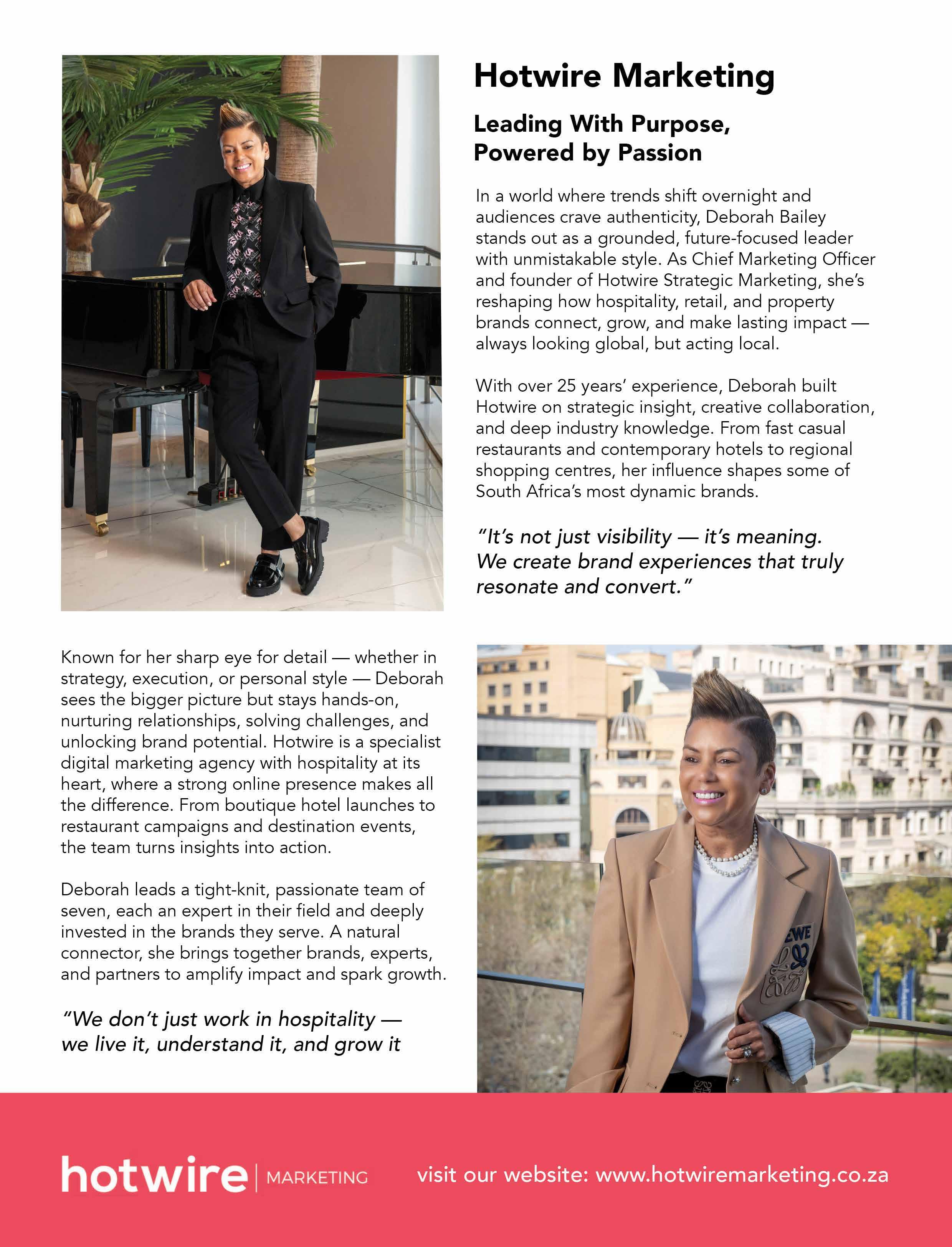

As an agency, dentsu is committed to mentoring change-makers to empower and accelerate their growth as part of its social Impact strategy. Mentorship within the dentsu School of Influence (dSOI) programme provides a nurtured support structure from skilled experts in the industry, accelerating their opportunity to connect, learn and grow.
MIA TESS SMITH (fashion stylist), mentor to Lisa Nyamane
What do you get out of mentoring?
My core purpose is to help people learn, solve problems and grow. Mentoring is one of the clearest ways to do that. When I assist someone in building skills, gaining confidence or reaching a goal, I’m doing exactly what I was designed to do.
What was your highlight the 2025 dSOI programme/mentoring process?
The most rewarding part would be watching individuals move from uncertainty or self-doubt to a place of stronger self-awareness.
How do you approach mentoring, what is your mentoring style?
My mentoring style is adaptive, but at its core, it blends coaching and collaborative problem-solving. I treat mentoring as a partnership. You’re the driver; I’m the navigator. I’ll match your energy.
ZOLA ZWANE (dentsu account director), mentor to Nosipho Malinga
What do you get out of mentoring?
Mentoring is always a two-way street. While I’m there to guide and support, I always walk away with fresh perspectives, energy and inspiration from the mentees. Working with young, passionate creators like Nosipho reminds me why I got into this space in the first place. Their hunger, ideas and creativity fuel my own growth and challenge me to stay current and open-minded.
What was your highlight of the 2025 dSOI programme/mentoring process?
The biggest highlight for me was seeing Nosipho grow in confidence and clarity throughout the programme. She came in with talent, but watching her step into her voice, refine her content and really own her space as a fashion and lifestyle creator was powerful. She’s a superstar who reminded me why mentorship matters.
How do you approach mentoring, what is your mentoring style?
I aim to be approachable and collaborative. I focus on listening first, then guiding with honesty, empathy and practical insight. I try to create a safe space for questions, experimentation and even mistakes because that’s where real learning happens. Ultimately, my goal is to help mentees see their own potential more clearly and feel equipped to take bold steps forward.
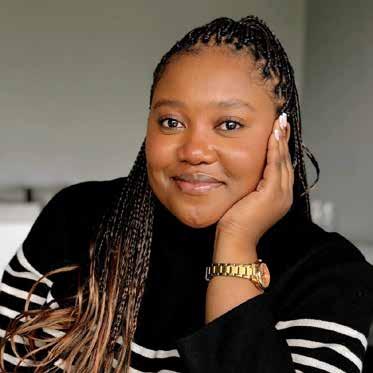
LIEZL VERMEULEN (head of food), mentor to Zamo Ngwenya
What do you get out of mentoring?
Mentoring often offers me the chance to stop and reflect. We’re running from one deadline to the next, but when mentoring, I need to verbalise what and why we’re doing something. In addition, I also get to see and hear about different parts of the business I might not usually work with. Specifically
I TREAT MENTORING AS A PARTNERSHIP. YOU’RE THE DRIVER; I’M THE NAVIGATOR. I’LL MATCH YOUR ENERGY ~ MIA TESS SMITH
working with the GenZ influencers, I actually get to learn about trends, some DIY or smaller production and tools as well. Essentially, I get to hang out with the cool kids for a moment and hopefully up my street cred.
What was your highlight the 2025 dSOI programme/mentoring process?
After I gave the dSOI students their first workshop (on pre-production), it was fabulous to see the script flipped when the dSOI students presented to the whole of DC at First Thursdays at the end of their course. It was a chance for the students to become the teachers and to share some of their contagious energy. We in turn got to learn who GenZs are, why we need to listen and how brands can connect better with this group.
How do you approach mentoring, what is your mentoring style?
To me, it’s about creating safe spaces: stepping out of the hustle and bustle of the regular physical spaces we find ourselves in and meeting to chat openly about the good and the bad. For me, it means also showing vulnerability by being honest and admitting that I don’t have all the answers (although I can help you find it or the people who can help). By doing this, it feels like we can create a friendlier, softer space in a hardcore advertising work environment.
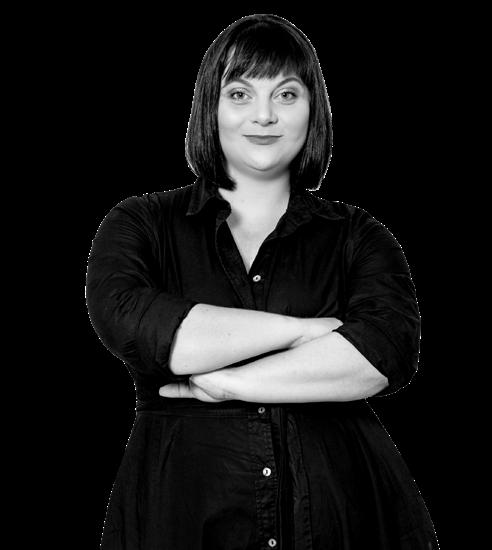
While most emerging South African content creators can find a ‘role model’ at a click, very few ever have opportunities to engage in-person with mentors to guide them on their influencing journey.
Early in the programme, two of my dSOI mentors, Natalie (Wilson) and Candice (Bester), spoke frequently about maintaining your voice and staying true to it, so that was an objective of mine throughout the programme. I saw what this meant in action when Mia (Tess Smith) was styling for a shoot, and the creative director wanted to change something that would have broken its cohesion. It made an impression on me when Mia respectfully, quietly but still assertively, stuck to her concept and showed that her voice mattered.
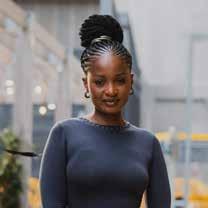
Throughout the dSOI programme various mentors acted as confidence-boosters and motivators. I found that any time my work or instincts or insights were recognised, it helped me gain confidence and apply myself more to the next thing. Throughout the programme, my performance was boosted by interacting with the mentors.
I also had the chance to experience Mia as more than a role model. At one point, she gave me a styling challenge that was out of my wheelhouse. She then guided and coached me, gently asking me a series of questions that took me right out of my box. The process led me to executing looks that fitted the brief that I wouldn’t have thought of on my own, but that still ultimately reflected my style.
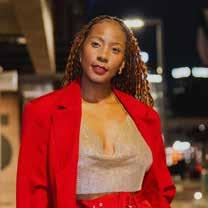
The most transformative thing for me about the dSOI programme was realising how I needed to be much more intentional about storytelling, more open to emotional connection and more focused on tailoring my content to my audience. So, it helped to have mentors who were there to support you to develop and grow.
One thing that stood out for me was when a mentor reminded me to trust my creative instincts. It might have just been one moment, but it made me approach all the challenges with more confidence. I had a confirmation I have never had before that my creative instincts have worth. dSOI mentors were also there for us as guides, to help us solve problems and think differently.
reassured me I was on the right track, which helped me move forward. Sometimes we aren’t aware of our own strengths or abilities, and it takes someone else to point it out. One of my most important experiences on the programme was when a mentor helped me see that I do have an ability to adapt quickly and think outside the box. This insight gave me the courage to take bigger creative risks.
My favourite aspect of the dSOI experience was how much knowledge we had access to, especially from industry experts and mentors. Getting to learn directly from people who work in the influencer industry has opened my eyes to everything that goes on beyond the brief. My mentor really put things into perspective for me at the beginning of my dSOI journey.

Learning from people with experience means I have graduated from the programme with knowledge and practical skills. I now understand what brands are actually looking for and that empowers me to position myself for meaningful, long-term collaborations. My mentor was also encouraging, and she motivated me to go for exactly what I wanted, to start with the end in mind.
During a particular assignment, I got to a point where I felt unsure about my direction. I was at a standstill. But my mentor had guidance for me and also
This is something that will stick with me, and it is sparking new perspectives and shifts in my mindset long after the programme finished. She showed me that I’m capable of exceeding my own expectations if I just believe in myself and show up. So, that’s an important growth in me as a person and as an influencer.

In celebration of Women’s Month, dentsu South Africa spotlights visionary women redefining the marketing industry. They share a common mission: to lead with heart, break barriers and amplify authentic voices that inspire change
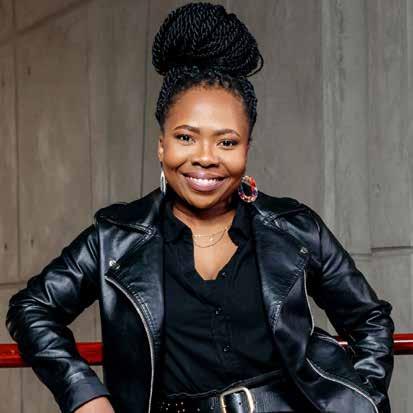
Lebogang Moerane, head of social and influence, Dentsu Creative SA
Lebogang Moerane leads social and influencer strategy at Dentsu Creative and boasts over a decade of experience in digital storytelling and culturally resonant campaigns. She drives creative innovation while building performance-led influence strategies that connect deeply with communities.
Moerane explains that women today are shaping culture by leading important conversations, from redefining beauty norms to mental health and finance, and creating platforms built on community and intentionality rather than fleeting trends. Moerane is excited about a digital era where authenticity is the baseline, and where emerging creators leverage transparency, collaboration and technology like artificial intelligence to amplify cultural truth. She sums up her approach to leadership and empowerment with a powerful statement: “Leadership is about opening doors and holding them open. I see it as my responsibility to ensure the
next generation of women in digital sees themselves and knows they belong.”
Candice Theron has spent over a decade with Carat Cape Town, growing alongside talented colleagues and clients while leading with strategic vision and operational excellence. As media director, she oversees the agency’s Cape Town operations, ensuring teams deliver media strategies that achieve tangible business outcomes. One of her greatest passions is mentoring interns and junior staff, helping them find their footing, build confidence and thrive in their roles.
Having learned from strong female leaders who modelled empathy and resilience, Theron is committed to mentoring the next generation. To her, women are transforming media planning by leading with empathy, redefining success through trusted relationships and prioritising impact over metrics alone.
“Being a girl from Athlone isn’t just part of my story. It’s the foundation of the leader I’ve become,” she says. Her roots in Athlone on the Cape Flats instilled grit, resilience and the drive to push beyond limitations. Those early experiences inform how she leads, supports and

uplifts others, especially young talent navigating similar challenges.
Muchaneta Madavo leads dentsu Johannesburg’s digital performance team, merging analytics with empathy to create campaigns that connect with people, not just numbers. “Every data point has a human story,” she says, reflecting her commitment to both precision and impact.
Her proudest moments include contributing to award-winning campaigns and serving as a jury member for the IAB Bookmarks. She believes women bring emotional intelligence, collaboration and inclusive decision-making to digital marketing leadership, reshaping how the industry approaches strategy and results.
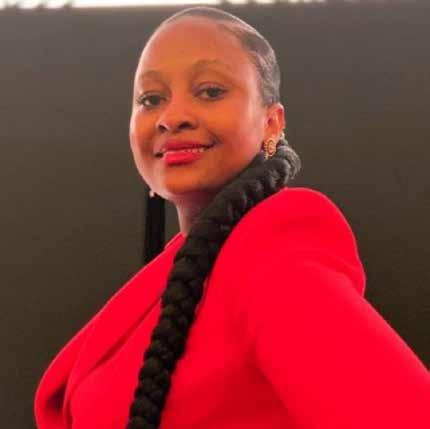
Through initiatives like McKinsey’s Black Leadership Academy, Madavo inspires the next generation of women to stay bold, curious and unapologetic in taking up space.
In the media landscape, Shihaam Abrahams combines resilience with authenticity. As the general manager of Carat South Africa’s Johannesburg team for the past three years, she’s built her career on passion, authentic relationships and commitment to her people.
For Abrahams, leadership is personal. “Authenticity and backing my team are non-negotiables,” she says. Her approach is rooted in empathy, charisma and sincerity. When she speaks about creativity, she goes beyond the typical buzzwords. To her, transformative creativity is not just about producing bold ideas; it’s about connecting with people deeply.
Abrahams is also passionate about highlighting the often-overlooked strengths women bring to leadership roles. “We lead with instinct, emotional intelligence and empathy. We read the room, hold the bigger picture and lead with conviction and care,” she says. These traits, often labelled as “soft skills”, are, in her view, strategic advantages that anchor teams and drive results. Abrahams adds: “I challenge the norm when it’s right to, but always with empathy. This is a people business. When you lead with clarity, purpose and heart, the rest tends to fallinto place.”
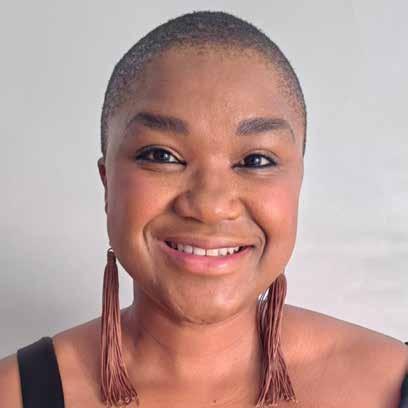
but they don’t always resonate locally, given the unique culture and dynamics of our region,” she notes.
“In a world where transformation can feel like a colouring-in exercise, I stand strong in integrity,” she says. “Knowing who I am and what I bring to the table is my power, and it cannot be silenced.”
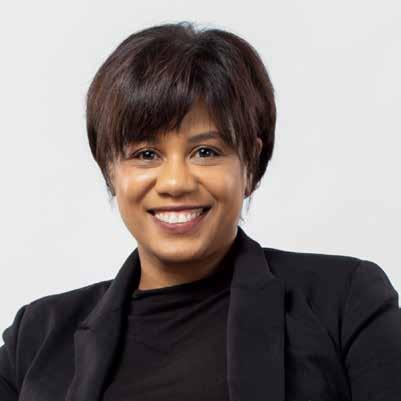
For Luvuno, leadership is the art of balancing control and chaos with grace: “Leadership looks like control with ease and chaos with grace.” Breaking barriers remains a constant mission.
She challenges the narrow definitions of who “qualifies” as a leader, advocating for recognising the strength and craft of women who don’t fit traditional moulds.
Lebohang Luvuno’s leadership is unapologetically authentic and rooted in lived experience. She is passionate about amplifying African stories and voices, particularly those of women, by insisting on authenticity over imitation. “Global trends are powerful,
Esther Ngobeni leads communications at dentsu South Africa, ensuring all messaging is clear, on-brand and strategically aligned. She crafts narratives that inform and inspire, connecting with audiences across platforms. Passionate about youth development, Ngobeni previously served on a youth committee, focusing on giving back and sharing knowledge
to help young people access educational resources. She now brings this ethos to the media and advertising industry, aiming to make a meaningful impact.
A PRISA member, Ngobeni recognises that the relevance and influence of PR and communications professionals is often underestimated. She believes in the power of PR and the human element, emphasising authenticity, especially as artificial intelligence (AI) and emerging technologies transform the media landscape. “As communications evolve with AI, staying current allows us to enhance impact without losing authenticity,” she notes.
As a woman in communications, Ngobeni is passionate about amplifying female voices and ensuring women’s perspectives are heard.
Being “not just a seat at the table” means owning influence, driving change and reshaping media on your terms. At dentsu South Africa, this spirit lives in our promise of innovating to impact. True change comes from bold voices, diverse collaboration and a relentless pursuit of equity. As the industry evolves, they remind us that progress is about creating new spaces and not just fitting in.

Dentsu celebrates these female leaders, who are inspiring the next generation to lead with purpose and pride.
This is sponsored content
The

In today’s hyper-digital world, content is everywhere. Brands are producing more than ever before – videos, blogs, reels, emails, podcasts, you name it. Yet the question we need to ask is “Is any of it working?”
At Penquin, a brand and communications agency known for driving measurable impact, this question gets asked often. The answer? Not always. One of the biggest challenges facing brands today is the tendency to create content for the sake of content. Not for connection. Not for conversion. Not even for conversation. Just content, ticking boxes on a strategy sheet. It’s time for a shift. It’s time for intent to return to the centre of marketing.
“Marketing is meant to move people, emotionally, mentally, or to action. If content isn’t doing that, then we’re wasting money, time and attention spans,” says Veronica Moleele, CEO of Penquin.
Too often, brands fall into the trap of prioritising volume over value. That “we need to post something every day” mindset has created a cluttered, noisy landscape, where truly meaningful communication gets lost in the shuffle. Intentional content doesn’t start with a brief; it starts with why.
THE CREATIVE PROCESS MUST BE LINKED TO MEASURABLE OUTCOMES, AND IT IS THE RESPONSIBILITY OF AGENCIES TO CHALLENGE BRANDS TO THINK DEEPER
Moleele explains that meaningful content starts by asking strategic questions. Questions such as: “What do we want this piece of content to achieve? Who are we speaking to? Are we speaking with them or at them? What do we want them to do, think or feel after consuming a particular piece of content?”
In addition, she explains that creative should never exist in a vacuum. It must be backed by insights, aligned with brand objectives and purpose-built to deliver value to the right audience, in the right way, at the right time. “This is where agencies
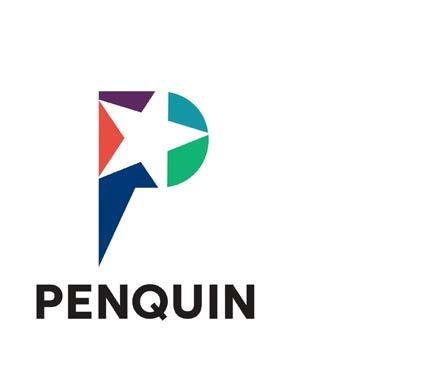
need to step up, too,” continues Moleele. “It’s not enough to just produce beautiful work. We need to challenge our clients, ask hard questions and push for the kind of strategic clarity that leads to real business results.”
The most effective campaigns are not those with the most assets; they are the ones with the most clarity. Moleele believes the creative process must be linked to measurable outcomes, and it is the responsibility of agencies to challenge brands to think deeper.
Findings from leading global marketing studies continue to show that brand salience, trust and engagement increase when consumers feel seen and understood. This is only possible when content is designed intentionally, rooted in insight, aligned with brand purpose and delivered at the right time and place.
Moleele observes that the most successful brands in 2025 are not necessarily the loudest, but the most purposeful. Their marketing efforts are strategic, considered and consumer-focused. Every campaign element – whether a TikTok clip, long-form video or billboard – is created to serve a defined function and contribute to a cohesive brand journey.
Penquin has worked with some of South Africa’s most dynamic businesses, helping them drive meaningful marketing outcomes by putting strategy before execution. Through this lens, content becomes sharper, messaging becomes stronger and the impact becomes measurable.
Are brands wasting millions on content? When there’s no clear intent – yes. However, with focused strategy, insight-driven creative and a partner who understands the value of purpose, content can cut through the noise and move people in the ways that matter most.
This is sponsored content
Penquin, a leading South African brand and communication agency, is celebrating a major milestone: 25 years of delivering impactful, results-driven marketing solutions to some of South Africa’s most iconic brands
From its humble beginnings in 2000, Penquin has grown into a powerhouse of creative strategy and fully integrated marketing.
Over the past quarter of a century, Penquin has remained fiercely committed to combining creativity with commercial thinking, developing campaigns that don’t just win awards, but more importantly, win hearts, grow brands and deliver tangible business impact.
This incredible anniversary is a testament to the agency’s resilience, adaptability and enduring vision. It celebrates a quarter-century of navigating market shifts, embracing digital transformation and consistently placing authentic human connection at the heart of every campaign. The milestone not only honours the agency’s history, but also marks a pivotal moment as it looks ahead to a future of continued innovation and growth.
“Reaching 25 years is an incredible achievement that fills me with immense pride and gratitude,” says Veronica Moleele, CEO of Penquin. “It’s a powerful reflection of the dedication, passion and talent of every single person who has been part of the Penquin journey. Our longevity is not by chance; it’s the result of a culture built on collaboration, a hunger for innovation and a deep-seated belief in the power of great ideas to build great brands. We are celebrating not just our past, but also the vibrant future we are poised to create.”
Penquin’s story is marked by agility, entrepreneurial spirit and a deep understanding of the South African consumer landscape. Throughout its history, the agency has been behind some of the country’s most exciting product launches and strategic brand campaigns, with clients ranging from automotive and retail to financial services and FMCG.
Among its proudest achievements is the long-standing relationship with Suzuki Auto

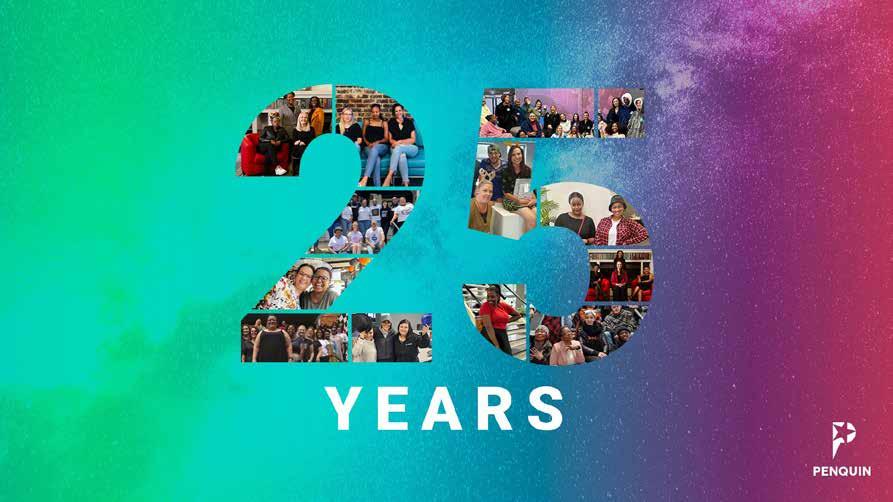
South Africa, a partnership that has grown into one of the most successful automotive brand stories in the country.
Moleele reflects on one of her defining career highlights at the agency. “My highlight when I started at Penquin was that I was coming in to launch the Suzuki brand back into the country. It was probably the most hectic and stressful time of my entire existence. We averaged three hours’ sleep a night for the first three months while we were getting everything underway,” she recalls.
“However, it ended up being the most memorable and epic period. I was left feeling as accomplished as I have ever felt at Penquin. The pump of those first three months was the best in my career, and it’s so incredible to look back and see how that journey has taken me to become the CEO of this incredible agency.”
Under Moleele’s leadership, Penquin has further cemented its position as a truly integrated agency, offering end-to-end solutions across strategy, creative, media, production, digital and PR.
The marketing world has undergone significant shifts over the last 25 years, from the dominance of traditional media to the rise of digital, social and performance marketing. Through it all, Penquin has remained on the front foot, adapting
and growing to ensure its clients remain relevant, competitive and culturally connected.
Whether guiding brands through the pandemic with empathetic storytelling, navigating influencer marketing with strategic rigour or exploring the future with artificial intelligence-powered campaigns, Penquin continues to lead with heart and intellect.
Over the past 25 years, Penquin has cultivated a legacy of award-winning work, strategic partnerships and a reputation for being an agency that genuinely understands the pulse of the South African market.
As Penquin steps into its next chapter, it remains dedicated to its founding principles while embracing new technologies and evolving consumer behaviours. The agency’s focus will continue to be on building strong, authentic connections between brands and their audiences, ensuring its legacy of impact and innovation endures for years to come.
This is sponsored content
CONTACT INFORMATION:
Address: 16 Louis Road, Orchards, 2192 Telephone: +27 11 879 1900
Email: info@penquin.co.za Website: www.penquin.co.za
Leadership is not just about titles. It shapes newsroom priorities, editorial tone and the lens through which stories are told,
writes Farah Wael.
Around the world, women hold far fewer media leadership roles than men. In fact, an average of just one in four top leadership roles is held by women.
Being the only woman in the room can feel like both an achievement and a warning. It signals that a barrier has been broken, but also also that the door is far from fully open. One seat at the table does not equal equality. It can be tokenism in disguise: a sign of progress that is fragile, reversible and too often used as proof that enough has been done.
The problem with tokenism is that it creates the illusion of change without altering the underlying structures.
At WAN-IFRA Women in News (WIN), we know representation matters. But we also know it is not enough. Our goal is not for women to be there as rare exceptions, but as part of balanced, sustainable leadership teams where others are prepared and positioned to follow.
WIN’s 2024 Leadership Mapping Report found that women hold 24% of business and editorial leadership roles across 19 markets. This is a marginal improvement.

In our previous research in 2022, we found women held 21% of these roles. Editorial leadership has plateaued at around 30%, while business leadership – the level that controls strategy and resources – remains below 20%.
The patterns are similar elsewhere.
The Reuters Institute’s 2024 study of 240 news outlets in 12 countries also found that 24% of top editors are women. In that same year, 50 organisations changed their editorial leadership, yet only seven replaced a man with a woman. Most transitions maintained the status quo, showing how rare it still is for leadership changes to open doors for new women leaders.
These numbers remind us that without deliberate action, even modest gains can stagnate or reverse.
THE ‘ONLY WOMAN IN THE ROOM’ SHOULD BE A TEMPORARY REALITY IN ANY NEWSROOM’S HISTORY – A MARKER OF PROGRESS IN MOTION, NOT ITS ENDPOINT
Yet, leadership is not just about titles. It shapes newsroom priorities, editorial tone and the lens through which stories are told. WIN has a free-to-use tool that helps newsrooms track gender balance in their content. Our tool has shown that media outlets led by women are more likely to produce more inclusive and representative journalism.
This isn’t about women leaders being inherently different; it’s about broadening decision-making to include perspectives shaped by diverse experiences. When those perspectives inform editorial choices, the result is more accurate, relevant and nuanced reporting.
Audiences notice this. Inclusive content builds trust because it reflects the full diversity of society. When women’s voices, experiences and expertise appear consistently in the news, audiences see themselves represented. And when coverage is fair and balanced across gender lines, the credibility of the newsroom as a whole grows.
In a time when trust in media is under strain, this is not just good ethics – it’s good business.
Representation without safety is meaningless. No leader can thrive or inspire others to follow in an environment where harassment goes unchecked.
WIN’s multicountry research on sexual harassment in newsrooms found that 41% of women journalists have experienced verbal or physical harassment. Yet, 80% of these cases go unreported, most often because of a fear of retaliation, career damage or the absence of a clear reporting mechanism. Only 11% of respondents even knew if their organisation had a harassment policy.
Addressing harassment is not an optional add-on to diversity work. It is a prerequisite for retaining talent and building inclusive cultures. This year, WIN is conducting a 2025 follow-up study to assess whether increased awareness and policy adoption over the past five years have translated into real change. The results will guide the next stage of interventions, ensuring safety is treated as a strategic priority, not a compliance box to tick.
For women who reach senior positions, the journey can be isolating. Being the ‘only’ means working without peers who share your experiences, and without a built-in support network for advice, advocacy and collaboration.
This makes strategic peer networks critical. In early 2025, WIN launched the WIN Guild – a network of senior women editors and publishers from Africa, the Arab Region and Southeast Asia. The Guild aims to transform individual influence into collective power.
When the first 19 members met in Malawi in February, they focused on
turning shared challenges into co-ordinated action. Members left with concrete plans to implement structured mentorship programmes in their newsrooms, to formalise succession planning, and to adapt successful models from their peers to their organisational contexts.
The Guild’s leadership pledge Ahead of International Women’s Day 2025, the Guild launched its Leadership Pledge – a public commitment to measurable change on gender equality. Each member pledged to:
• Mentor at least two women within their organisation.
• Create a succession plan to ensure women are positioned for top roles.
• Use their influence to challenge bias, close pay gaps, stop harassment and ensure safer working environments. As part of delivering on this pledge, Guild members are now actively developing structured mentorship programmes within their organisations. They are drawing on the experiences of already existing initiatives created by some Guild members in their newsrooms –using these as working models to design programmes tailored to their contexts. The goal is to have these mentorship systems fully operational by the end of the year, ensuring the next generation of women leaders is supported, visible and ready to step into senior roles.
The pledge is also a challenge to peers: join us or explain why not. Later this year, a second cohort will join the Guild, expanding the network’s reach and deepening its ability to shift newsroom cultures from the inside out.
Breaking the ‘only woman’ cycle requires more than simply placing women in leadership. It demands systems that make gender equality a permanent feature of the organisation.
THIS ISN’T ABOUT WOMEN LEADERS BEING INHERENTLY DIFFERENT – IT’S ABOUT BROADENING DECISION-MAKING TO INCLUDE PERSPECTIVES SHAPED BY DIVERSE EXPERIENCES
Mentorship, sponsorship and coaching are vital here. WIN has found this to be incredibly useful over the past 15 years of running the Leadership Accelerator, a structured and intensive mentorship and coaching programme. Mentorship provides guidance and skills, while sponsorship actively advocates for women’s advancement. Coaching helps unlock a person’s potential, guiding them in developing their own solutions. Together, they ensure that mid-level women are not invisible to decision-makers, but are prepared and supported to step into leadership roles when opportunities arise.
Succession planning is equally critical. Without it, leadership changes often revert to the male majority. By embedding succession into organisational strategy, women’s leadership becomes a constant, not a temporary exception.
These measures are not just about diversity – they are about organisational resilience. Newsrooms with diverse leadership are better equipped to understand and serve their audiences, adapt to change, and maintain credibility in a competitive media landscape.
The ‘only woman in the room’ should be a temporary reality in any newsroom’s history – a marker of progress in motion, not its endpoint. True equality will be reached when leadership teams reflect the societies they serve; when women leaders are supported by networks of peers; when succession planning takes women into account; and when newsrooms are safe, equitable and inclusive by default.
Tokenism can be dismantled. Representation can be secured. And with deliberate, sustained action, walking into the room and seeing many women at the table – each bringing their voice, vision and authority – will no longer be remarkable. It will be normal.
Farah Wael is the director of advocacy and engagement at WAN-IFRA WIN , leading global campaigns, the SIRI grants programme, the gender balance tracker, and strategic initiatives advancing gender equality, and inclusive leadership in media across three regions.
Your People are the most powerful channel for your Brand promise, making talent strategy your most critical marketing tool, writes Tovè Sithole, head of talent and brand at iTOO Special Risks
Simon Sinek said: “If you don’t understand people, then you don’t understand business.” I’ve witnessed something remarkable in my career: companies that truly understand their people don’t just work for their brand – they make their brand come to life. Every interaction, decision and conversation either reinforces or undermines what we promise our clients. This isn’t just HR philosophy; it’s a strategic imperative.
Your talent strategy isn’t just about hiring; it’s about creating brand ambassadors who share your values and beliefs. When employees genuinely live and protect your brand, they become your most authentic marketing channel. In an era where customers crave authenticity, this distinction has never mattered more.
Clients can instantly detect when brand promises don’t match employee behaviour. I’ve seen beautifully crafted brand campaigns crumble the moment a customer encounters a disengaged employee who doesn’t believe in what they’re selling.
Conversely, I’ve watched companies with modest marketing budgets build fierce customer loyalty simply because their staff genuinely embody brand values, creating seamless, consistent experiences that build deeper trust. When your people authentically represent your brand, every client touchpoint becomes a powerful brand moment.
Traditional hiring has failed us. We’ve been so focused on skills and experience that we’ve forgotten the most crucial elements: attitude, cultural fit and shared values. It’s time to reimagine our approach fundamentally.
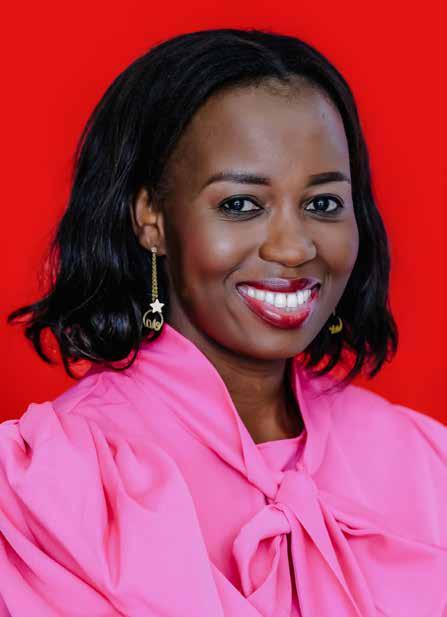
This means rewriting job descriptions to reflect brand personality and using interview processes that reveal authentic alignment. When I see companies asking candidates about their values rather than just their achievements, I know they understand something profound: an alignment with values and the right cultural fit will outperform the most qualified candidate who doesn’t connect with your purpose.
When employees genuinely connect with brand purpose, something magical happens – their enthusiasm becomes contagious. I’ve observed how this ripple effect impacts everything: customer interactions become more meaningful, innovation flourishes because people care about outcomes, problem-solving improves because teams are emotionally invested, and recruitment becomes easier as passionate employees naturally attract like-minded talent.
What does this look like in practice? It means weaving brand story, values and the behaviours we celebrate into onboarding that goes far beyond surface-level orientation. It means creating development plans that reinforce brand values, not just climbing corporate ladders. It’s about ensuring every engagement, every promotion, every recognition reflects your values.
I’ve seen companies transform their entire culture by simply aligning these fundamental people practices with their brand promise. The results speak for themselves: more engaged staff, higher retention, exceptional customer service and organic brand advocacy that no marketing campaign could buy.
Companies with strong talent-brand alignment create something competitors can’t easily replicate – a workforce that’s genuinely passionate about the mission. This isn’t just feel-good rhetoric; it’s a competitive advantage. When your people believe, everything changes.
When talent strategy and brand strategy converge, you don’t just build a workforce; you build a movement. And, movements are what create lasting impact in our world. The future belongs to leaders who recognise that their greatest brand asset walks through their doors each morning.
This is sponsored content
Tovè Sithole is head of talent and brand at iTOO Special Risks, combining 15-plus years in insurance with expertise in skills development, change management and ICF coaching to align people with brand excellence.
CONTACT INFORMATION:
Email: Toves@itoo.co.za Website: www.itoo.co.za




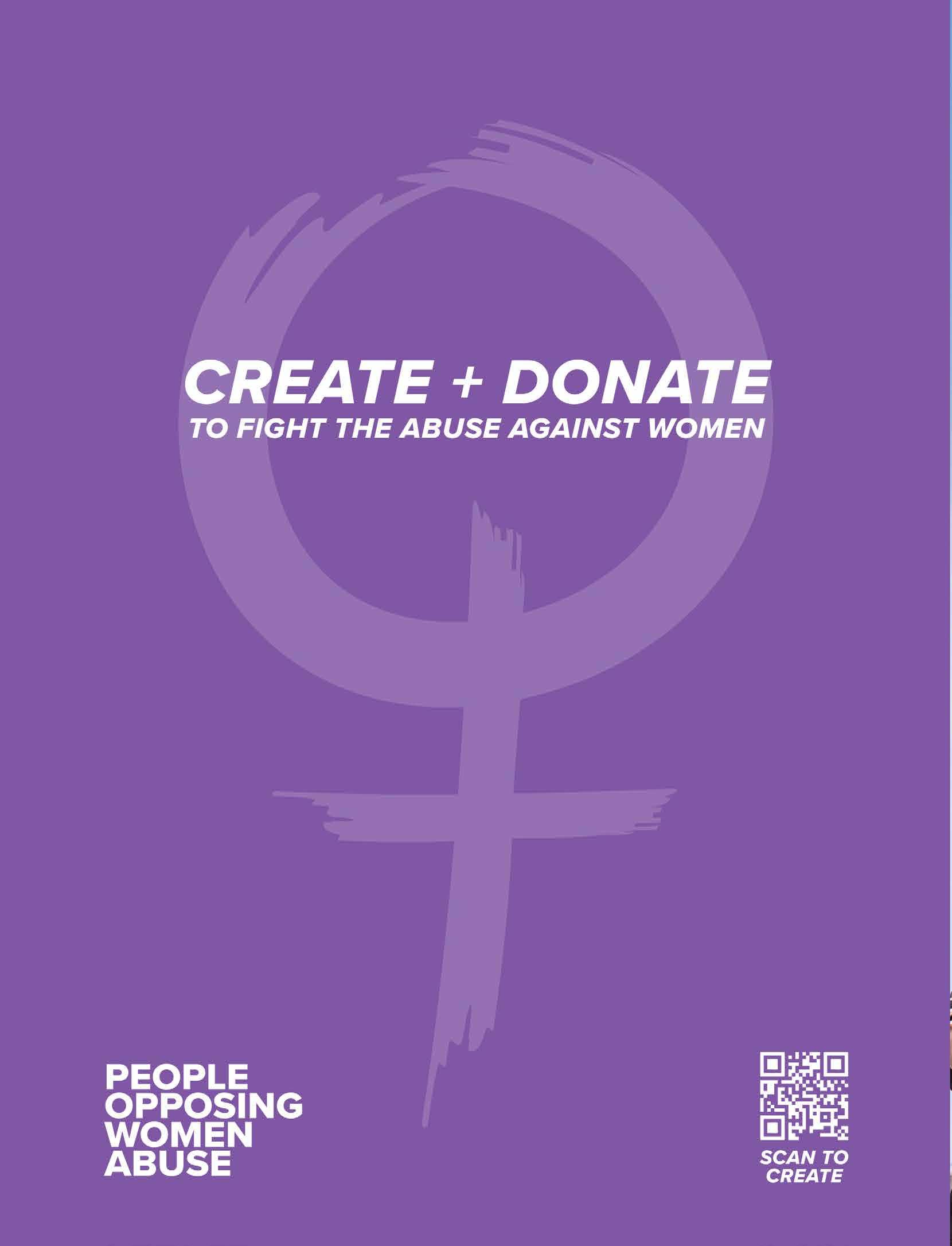
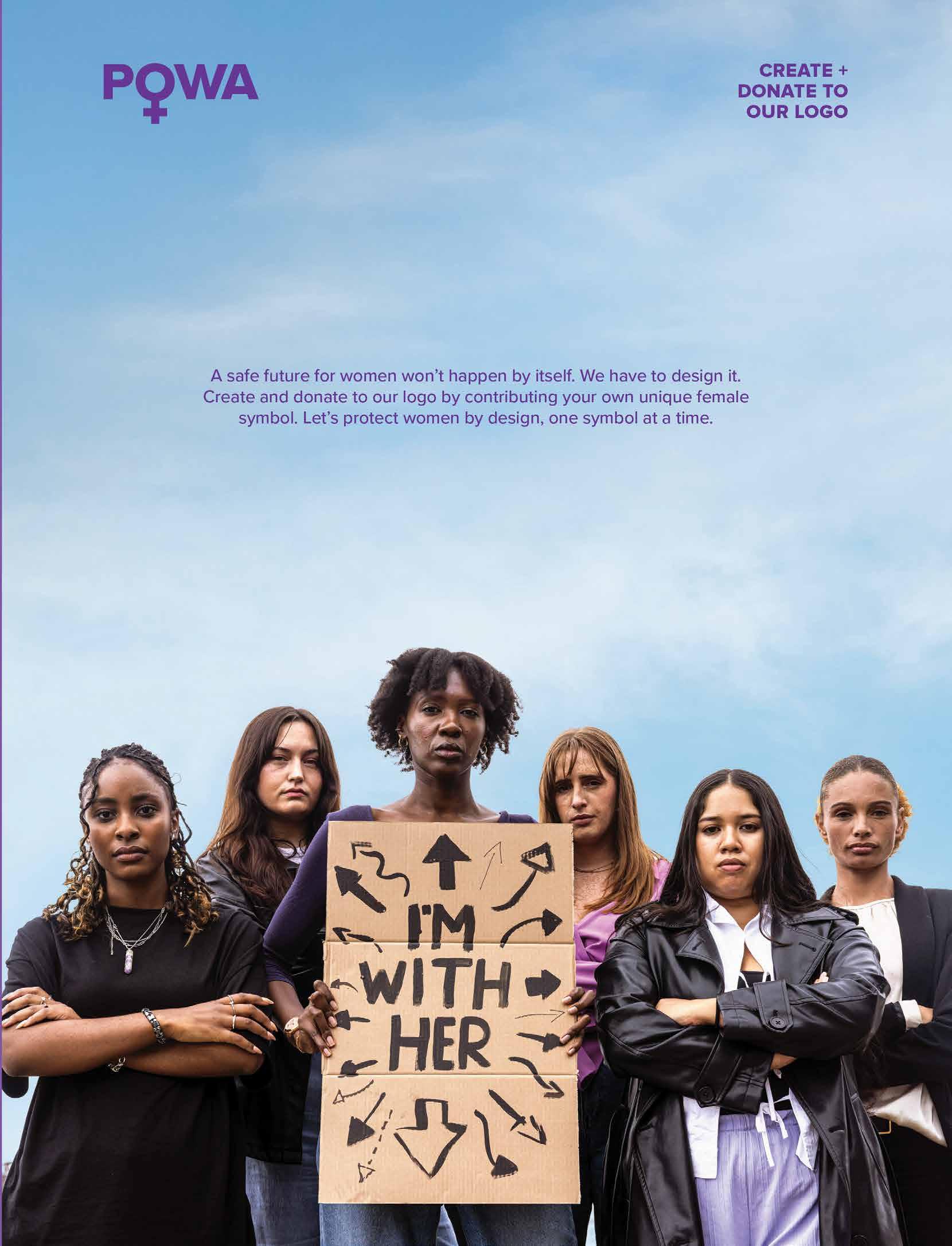
Open Chair annually selects a young female creative to attend the Cannes Lions Festival of Creativity. In 2025, Michelle Lourens set off for France. This is what she experienced.
When I joined IMA, I quickly learned that this is not just an agency; it is a place where people work together, share ideas and push each other to grow. We are part of Smollan, with a global footprint, but what stands out is how grounded we are in local culture. We know how to connect brands and people through experiences that really mean something. That is what makes our work feel relatable.
Earlier this year, I was given an opportunity of a lifetime. Through the Open Chair Programme I was chosen to attend the Cannes Lions Festival, the biggest celebration of creativity in the world. To be honest, I did not know what to expect. I thought it would just be about awards and back-to-back talks. But it turned out to be so much more. It was like a giant classroom where every session and every piece of work on display taught me something new.
Cannes was bold. The work was brave, funny, emotional and sometimes even uncomfortable. It made me see that creativity is not about playing it safe. It is about taking risks, telling the truth and putting people first. The best campaigns do not just look good, they connect with real people and make them feel something. What drew me in most was the experiential space. This was where brands invited people to interact and connect with them on a personal level. It kept me captivated and entertained because
it showed that the strongest stories are not only told, they are lived. I felt like I was part of the brand’s world and not just a spectator. This made me even more curious about how far we can push experiences back home.
One thing that stood out was the return of humour. Brands are learning to laugh with people again. Another was how fast brands are becoming. They listen and respond in real-time, which makes them feel closer to the people they serve. And even with all the growth in technology, Cannes reminded me that human stories matter most.
Walking through the exhibitions, I kept thinking, “Wow, I wish I had worked on that.” That is when you know an idea is powerful. Not all the winning work came from big budgets either. Some of the best came from small teams with fresh ideas that spoke straight to the heart. That made me proud, because I know we have that same spirit here in South Africa and at IMA.
Another big takeaway was how important time has become. People do not just want to see brands; they want to experience them. Time is the new currency, and if someone gives us their time, we need to make it worth it. That reminded me of the work we do at IMA, where experiences are at the centre of what we create.
Coming back home, I felt different. Cannes gave me a new lens on what creativity can be. It made me hungry to be braver in my ideas and bolder in how I tell stories. It also reminded me that learning never stops. I came back excited to share what I learnt with my teammates, so that together we can grow and keep raising the bar.
Awards like Cannes are special because they put the best of the world on display. But the true value is what you bring back. For me, it was not just about the
inspiration. It was about the lessons I can now apply here, with my team, on the brands we work with every day.
I am grateful for the chance I was given. I left Cannes inspired, and I came back ready to create work that is brave, bold and human. Work that connects. Work that matters.

Mentorship is shaping the next generation of women in creativity, and is proof that when women mentor women, the impact is exponential.
Mentorship here is not a tick-box exercise. It is lived and felt, the understanding that if one woman steps into a room, she will hold the door open for the next. Success is never a solo act. It is a shared journey, built on the shoulders of those who came before and the hands of those lifting others up.
This is the environment at IMA, a Smollan agency with a global footprint and a track record of creating work that connects brands and people across markets. Known for its collaborative spirit and for championing women in the creative industry, IMA blends local cultural insight with global creative excellence to deliver ideas and experiential campaigns that inspire action.
It’s here that Michelle Lourens, an award-winning art director and multimedia designer, found herself when she joined the agency. Multifaceted in skills and perspective, she arrived with a hunger to learn, create and push boundaries. The presence of women in leadership meant mentorship was not only possible, it was inevitable.
Generous and intentional
One of those leaders is Nomalungelo Molefe, known as Lungi, an art director and creative group head with more than 14 years of experience shaping campaigns and guiding teams. Her approach to mentorship is generous and intentional, investing in the person as much as the work.
Through the Open Chair Programme, Michelle was given a rare opportunity to attend Cannes Lions Festival of Creativity. She arrived not as a passive observer, but as a creative ambassador

MENTORSHIP IS ABOUT MORE THAN PASSING ON SKILLS. IT IS HELPING SOMEONE SEE THEIR POTENTIAL BEFORE THEY CAN SEE IT THEMSELVES
for what happens when talent meets opportunity. Cannes gave her direct access to leadership, networks and career defining conversations.
Michelle reflects, “Cannes was a masterclass in creativity. Every talk, every workshop and every interaction taught me something new. The work I saw was bold, unapologetic and challenged the way I have been taught to think about ideas. It gave me a different lens on what creativity can be when it refuses to settle for safe. I left inspired, and I cannot wait to share that energy and learning with my peers.”
Back at the agency, her journey was shaped by Lungi’s mentorship, sharpening her craft, building her confidence and guiding her through the realities of the industry. While Cannes expanded her vision, Lungi’s guidance grounded her growth, matching inspiration with practical skill and self-belief.
Lungi says, “Mentorship is about more than passing on skills. It is helping someone see their potential before they can see it themselves. Watching Michelle grow in craft, confidence and voice has been one of the most rewarding parts of my career.”
The culture that enables this is championed by managing director Katherine Fremantle, who is deliberate about creating an environment where women not only occupy seats at the table, but also pull up extra chairs for others.
Katherine says, “True leadership is about creating pathways for those who are coming next. Mentorship enables this because it goes beyond career advice. It opens access to the spaces and conversations that shape careers.”
The Open Chair Programme and Cannes were milestones in Michelle’s career and proof that when women mentor women, the impact is exponential. She returned committed to paying it forward and championing young creatives.
Mentorship here is not confined to formal programmes. It lives in quick feedback, a word of encouragement or an introduction at the right moment. These small acts build careers and shape futures.
Awards like Cannes matter. They showcase excellence on a global stage. But the real legacy lies in the women who will remember the person who believed in them, taught them and trusted them to take up space, and then inspired them to do the same for someone else.

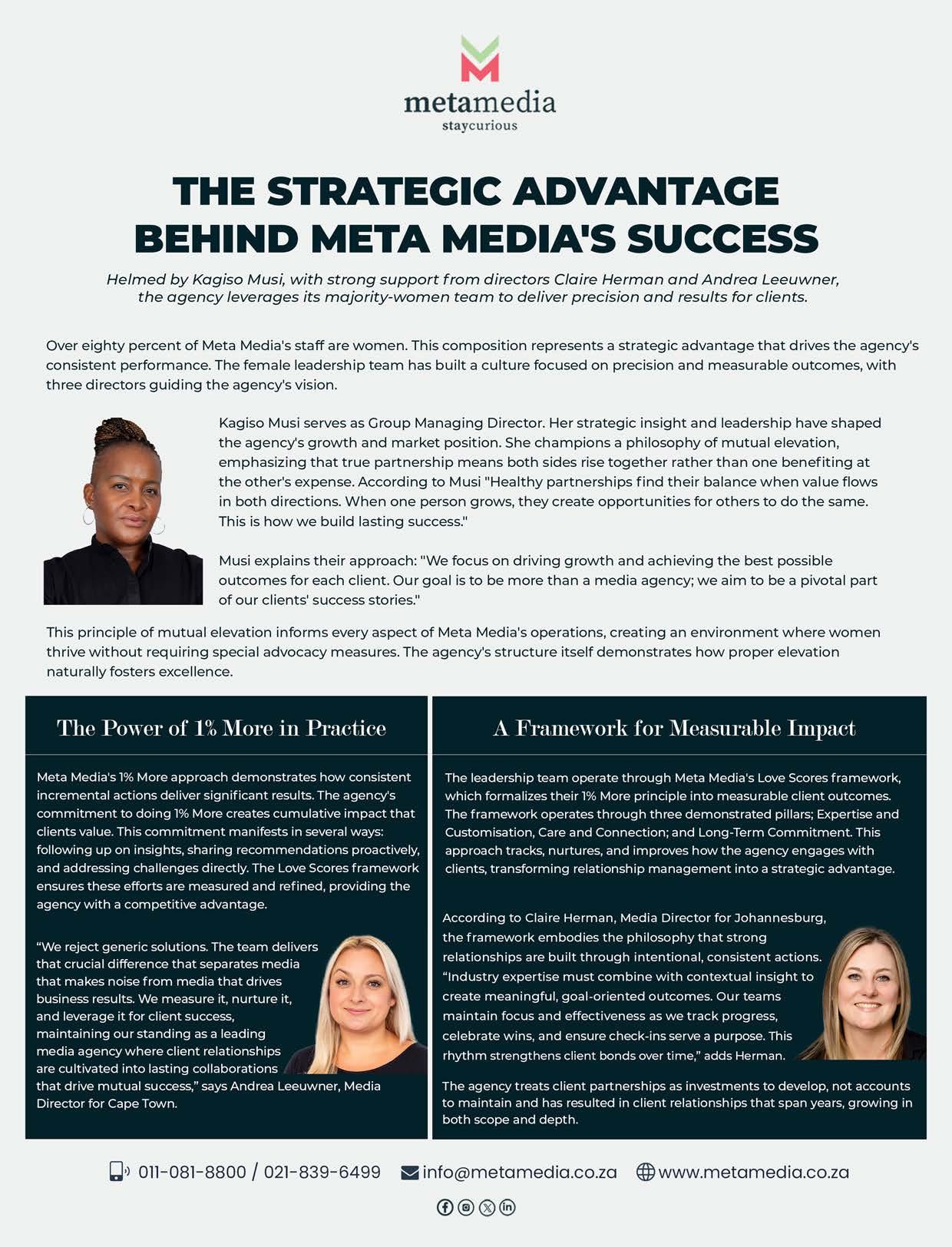
In an increasingly tough economy where competition between agencies can reasonably be described as cut-throat, focusing on collaboration and partnership may seem counterintuitive or even downright ridiculous. But we believe this approach not only brings immense benefits to clients, it has also helped our agency, The Principality, thrive.
“Collaboration” is often bucketed into that infuriating range of skills attributed to women, the so-called “soft skills” we are credited for bringing to the boardroom table. We would argue that efficient and effective partnership isn’t purely “soft”. Of course it is relationship-based, but it also needs to be strategic, rigorously managed, contribute to profitability and deliver better outcomes for our clients.
From inception, we’ve valued the immense power of partnership. We’ve never been afraid to own what we’re best at, and when other specialised expertise is needed, we use our strong network across industries and disciplines to build a top-quality project team. Of course that means there are bottom-line impacts on our business, but operating from a place of abundance – that there is more than enough work for all of us – has brought immense value to our clients and our team.
For our clients, our openness to collaboration indicates that we have their best interests at heart, that we won’t cling to work for our own sake, but always ensure they have the best possible solution delivered by the best person for the job. This approach has helped us build deep trust with our clients: not only do they have a strategic partner who is deeply invested in their success, they also have a network of experts at their service so they are assured of the best possible outcome, and often better timelines, as more work can happen simultaneously.
Releasing yourself from a scarcity mindset can lead to more collaboration and a better business, Carien Els believes.
Partnership, in our universe, is not outsourcing. We work closely with partner agencies and individuals. Strategic alignment is critical. Our teams share knowledge and skills so everyone can provide a better service. We often co-pitch because we know that we can provide a whole that is bigger than the sum of its parts. And because we tend to collaborate with other similar agencies – established but boutique, there is still an entrepreneurial mindset at play: we pivot, adapt and problem-solve at a speed at which some of the bigger players can’t.
This approach isn’t all rosy. Effective collaboration requires a level of honesty and self-knowledge that not all business leaders are willing to face. It often means rigorously examining your strengths, weaknesses, capacity and growth goals and being open about them with clients and collaborators.

Some of the trickier bits we’ve run into include managing egos across teams, maintaining rigorous quality standards across multiple partners, ensuring we’re working with absolute best-in-class collaborators and keeping everyone aligned on priorities and timelines.
In many ways this openness to collaboration is a largely female approach to leadership and business. A recent study by the US-based National Bureau of Economic Research found that women prefer to work in teams while men prefer to work alone. When given team-based versus solo projects, women are 66% more likely to assist others and consistently choose collaborative approaches, especially when incentives are aligned with team performance. Despite the research, we have developed remarkably successful partnerships with male-led businesses and freelancers.
Although we do credit our deeply ingrained collaborative philosophy with a female approach to business, as founders we have a shared belief in the power of abundant thinking and building a model of shared success. It is so easy in a competitive economy to fall prey to fear, and to try to hold on tightly to the whole pie.

The question isn’t whether collaboration belongs in the “soft skills” category –it’s whether businesses can afford to ignore the competitive advantage that collaborative thinking provides. Our overarching view is that the good things in life – whether it be cake, pie or business – are best shared, that there is enough to go around for all of us and that a collaborative approach to business helps both clients and agencies thrive.
This is a conversation about honest accountability and collective reflection, writes Lerato Mapitsa. I’ve felt the sting of being seen as a threat rather than a genuine sister seeking to uplift.
In the media world, there’s an unspoken story beneath the surface, where smiles and greetings can mask a deeper tension. Too often, women find themselves caught in a cycle of competition, guarding temporary roles like borrowed crowns while the real power, the castle, remains just beyond our grasp.
This is a conversation about honest accountability and collective reflection. I’ve been in spaces where holding people accountable led to being labelled “difficult”, even when my intentions were rooted in genuine collaboration. I’m still not sure if it was my divine light, the many solid relationships I’ve built over the years through my strong work ethic, or the way I challenged the status quo by simply asking clarity-seeking questions that made waves.
Maybe it was a combination of all these or something else entirely. I’ve felt the sting of being seen as a threat rather than a genuine sister seeking to uplift.
This tension is real and shared by many
It’s the quiet calculation that there isn’t enough success to go around, so we must guard what’s “ours” fiercely, even if it’s just borrowed. This mindset fractures us and keeps the industry stuck in cycles of rivalry rather than rising together.
Here’s where Carl Jung’s profound insight helps us understand these dynamics more deeply: projection is when someone unconsciously takes an aspect of their own hidden self and attributes it to others. This can fuel manipulation and false narratives.
Often, people project their own insecurities and flaws onto those they target, spinning the truth to make themselves appear innocent while casting others as “the problem”. This psychological shadow work helps explain why gaslighting and sabotage can feel so insidious, yet persistent in our industry.

What does it take to move from guarding borrowed power to creating lasting ownership? It starts with you and me. It starts with holding space for one another without fear, even when voices are trembling and refusing to throw each other under the bus. It means calling out behaviour that undermines progress while offering real, intentional support.
It means building genuine sponsorship, where women don’t just nod in agreement but actively open doors for one another. Genuine sponsorship means
championing each other’s growth loudly and honouring the promises made, ensuring every woman has the freedom to lead her own orchestra and conduct her path with autonomy and power.
It means transparency, naming manipulation and lies without hesitation, because avoiding the truth only prolongs the cycle. Most importantly, it means embracing an abundance mindset: knowing that one woman’s success doesn’t take away from another’s, but adds to a collective power that can’t be taken away, especially in a still male-dominated industry.
As I reflect on my journey and the industry we share, I wonder what it would look like if we eased the grip on borrowed crowns, if we began to see power not as something to guard fiercely alone, but as something we can build and share together.
Maybe the legacy we want starts here, with openness, with trust and with a commitment to collective growth. Our legacy is not just what we build for ourselves, but what we leave for the women and girls watching us now. It’s a blueprint for courage, collaboration and authentic power, a roadmap for generations to come.
When the crown is borrowed, it can be lost. But when we come together to build the castle, we create something lasting, something no one can take away.
As Marianne Williamson writes, “We unconsciously give each other permission to shine.”
Lerato Mapitsa is an accomplished media professional with 19 years of industry experience and is committed to advancing authentic women’s leadership within the advertising sector. She proactively challenges established norms to foster collaborative and inclusive environments where women are empowered to lead with determination, purpose and integrity.

Life in the female-led radio sales team at Rosestad 100.6FM.

Women’s Month is a time to reflect on the power, resilience and brilliance of women — and, sometimes, it’s also the perfect time to peek inside a world where female energy reigns supreme. Enter the radio sales team at Rosestad 100.6FM in Bloemfontein. A lively tribe of women with quick wits, killer instincts and more caffeine in their veins than a barista during a Black Friday rush. And, right in the middle of all this brilliance? One man. One brave, brave man.
Let’s call him ‘Gerdie’ – the thorn among the roses.
When Gerdie first joined the team, he looked a bit like someone who’d accidentally joined the wrong WhatsApp group. Fast forward a few years, and now? He fits in like a purse dog in a designer handbag.
The sales office buzzes not just with phone calls and pitch decks, but also with banter, laughter and the occasional argument over whose turn it is to restock the communal coffee jar.
WHAT MAKES THIS ROSESTAD 100.6FM SALES TEAM SPECIAL ISN’T JUST THE GENDER BALANCE (OR IMBALANCE), BUT THE DEEP-ROOTED RESPECT AND SUPPORT THEY HAVE FOR ONE ANOTHER

Radio sales is not for the faint-hearted. It’s a rollercoaster of deadlines, client pitches and targets that seem to move faster than a trending TikTok sound. However, these women at Rosestad 100.6FM make it look effortless. Like they were born with spreadsheets in one hand and charm in the other.
The mornings kick off with a flurry of heels, hairstyles and high-fives. The team doesn’t do quiet. They do co-ordinated chaos, complete with synchronised coffee runs and fierce debates over whether Celine Dion or Jennifer Zamudio reigns supreme.
Each woman brings her own flavour to the mix. There’s Jo, the spreadsheet queen who can close a deal while colour-coding her calendar. Johleen, the team’s resident hype-woman who can lift moods (and revenue) in seconds. Karin, the calm in the storm who handles client meltdowns like she’s negotiating peace treaties, and let’s not forget Selma, the office fashionista who swears by power suits and perfectly winged eyeliner – even on Casual Friday.
Together, they’re a force. Apart, they’re still a group chat away from world domination.
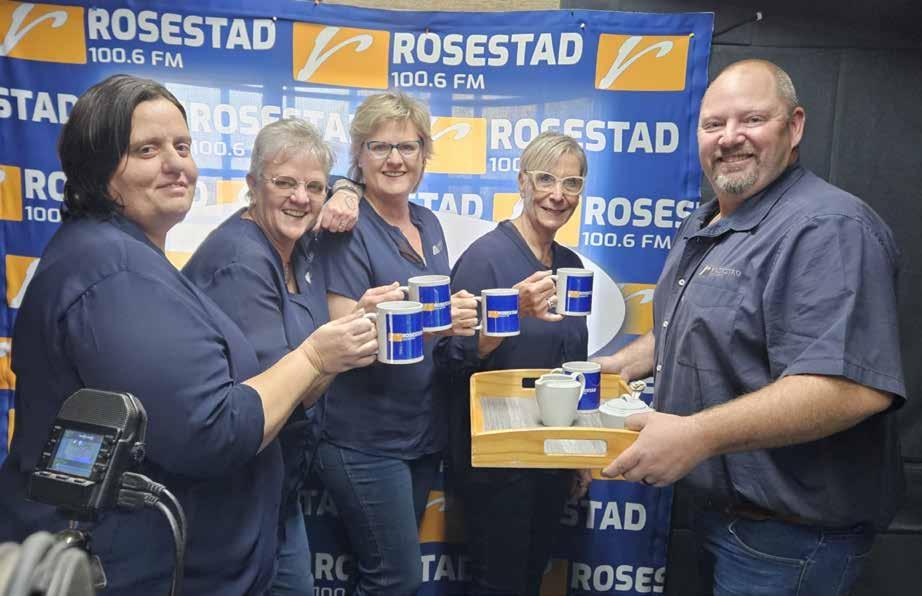
THE SALES OFFICE BUZZES NOT JUST WITH PHONE CALLS AND PITCH DECKS, BUT ALSO WITH BANTER, LAUGHTER AND THE OCCASIONAL ARGUMENT OVER WHOSE TURN IT IS TO RESTOCK THE COMMUNAL COFFEE JAR
Being the only guy on a team of dynamic women might sound intimidating, but Gerdie holds his own – mostly by knowing when to speak and when to offer snacks. Over the years, he’s learned to understand the importance of mood swings during deadline week and has become impressively fluent in ‘eye-roll’ language.
He’s not just tolerated; he’s adored. Not because he’s trying to “be one of the girls”, but because he’s genuine, respectful and quick with a laugh when the team needs it most.
What makes this Rosestad 100.6FM sales team special isn’t just the gender balance (or imbalance), but the deep-rooted respect and support they
have for one another. It’s a place where competitiveness and camaraderie dance side by side. Where wins are celebrated with loud cheers and losses are softened with shared stories and the occasional after-work cocktail.
These roses – and the thorn – are all part of the tribe. A network of support, sarcasm, empowerment and inside jokes that no one outside the team would ever understand (or dare to try).
In many ways, this team is a microcosm of what Women’s Month stands for: collaboration, strength, joy and the celebration of unique identities working together towards a shared goal. It’s a space where voices are heard, talents are nurtured and laughs are plenty.
So, here’s to the radio sales warriors of Rosestad 100.6FM – the roses and their thorn. The women who keep the gears turning, the clients happy and the coffee flowing, and the man who’s lucky enough to witness it all up close, every day. He may be the only guy in the room, but trust us, we wouldn’t want it any other way.
This is sponsored content
CONTACT INFORMATION: Telephone: 051 412 6401
Email: admin@rosestad.co.za
Website: www.rosestad.co.za
Mdhluli, founder of Tishala Communications.
Nomsa Mdhluli’s journey from an award-winning broadcaster to the founder of Tishala Communications, a multi-award-winning PR and digital marketing agency, is a testament to the power of storytelling, resilience and strategic reinvention. Her career, rooted in journalism, has not only shaped her expertise but also fuelled her entrepreneurial success in the competitive world of public relations.
Mdhluli’s media career began in 2010 when she joined Primedia Group as a radio news anchor, reporter and producer for stations like CapeTalk, Kfm 94.5 and 702. Her tenure at SABC Radio News further solidified her reputation as a trusted broadcaster covering national and international stories with depth and clarity. Her distinctive voice and sharp news anchoring skills earned her recognition, including the prestigious Liberty Radio Award for Best PBS News Reader in 2017.
Journalism instilled in her the art of listening deeply, speaking with purpose and crafting narratives that resonate, skills that later became the bedrock of her PR agency. As she reflects: “Radio didn’t just amplify my voice; it taught me to trust it.”
While excelling in broadcasting, Mdhluli’s foray into PR began almost serendipitously. A freelance opportunity with a PR firm handling the Cape Town International Jazz Festival in 2013 ignited her passion for strategic communication. She realised her journalistic storytelling could be repurposed to amplify brands, not just news.
In 2018, she founded Tishala Communications, a boutique PR and digital marketing agency named after the Swahili word for “one who has great willpower”. Her mission is to help corporate clients, particularly in tech,


artificial intelligence, advocacy and healthcare, craft compelling narratives that cut through the noise.
Mdhluli’s journalistic background gave her an edge in PR. She didn’t just write press releases; she unearthed the “interesting gems” in her clients’ work, framing their innovations as newsworthy stories. This approach earned her agency high-profile clients, including Africa’s first-ever Artificial Intelligence event and the South African International Film Festival.
Her years in newsrooms taught her how media operates, what journalists need, how deadlines work and how to pivot during crises. This insider knowledge allowed Tishala to secure impactful media placements and manage reputations effectively.
Just as journalism demands credibility, PR thrives on trust. Mdhuli’s ethical grounding, honed through years of unbiased reporting, ensured her agency worked only with clients whose values aligned with theirs. “PR isn’t just about cleaning up messes; we’re bound by ethics,” she emphasises.
Her media network became an asset. Former colleagues, now editors and producers, trusted her pitches, knowing her journalistic rigour translated into PR integrity.
Transitioning from a salaried journalist to an entrepreneur wasn’t easy. Early struggles included underpricing services and navigating client audits. Yet, her resilience paid off. By 2023, Tishala’s growth led Mdhuli to take the leap into full-time entrepreneurship.
Today, Tishala is celebrated for its niche expertise, with aspirations to evolve into a full-service media house. Mdhluli also pays it forward by mentoring young PR professionals and teaching journalism at the University of Johannesburg, ensuring the next generation harnesses storytelling for impact.
She holds a master’s degree in mass communication from Liverpool John Moores University.
Mdhluli’s story proves that journalism isn’t just a career; it’s a training ground for strategic communication. Her ability to distill complex ideas into engaging narratives, her media intuition and her unwavering ethics have made Tishala a standout in PR.
As she puts it: “Entrepreneurship found me, but journalism prepared me.” For aspiring communicators, her journey is a masterclass in leveraging skills, embracing change and owning your narrative both on and off the airwaves.
This is sponsored content

Radio is intimate, immediate and impossible without great personalities, and Jacaranda FM is home to some inspiring female presenters.
From sunrise to evening wind-downs, Jacaranda FM’s female presenters bring warmth, humour, insight and authenticity to the airwaves, making every listener feel seen, heard and entertained.

When your alarm clock goes off, Philicity Reeken is already awake, coffee in hand, and ready to make mornings brighter. As the co-host of Jacaranda FM’s Breakfast with Martin Bester, she’s the voice keeping you company as you head into your day, blending wit, heart and relatability. Reeken’s talent for authentic conversation extends beyond breakfast. Her podcast, ‘Love, Dating and Chaos’, is a must-listen for anyone navigating the messy, beautiful business of relationships. Her natural curiosity and zest for life shine through in every conversation, and it’s that same energy that makes her a listener favourite.
If mornings are for getting going, then mid-morning with Elana Afrika-Bredenkamp is for hitting your stride. Hosting ‘The Workzone’, Afrika-Bredenkamp blends upbeat music with sharp, topical conversation. An award-winning media personality with a career spanning television, radio and digital platforms, Afrika-Bredenkamp brings depth and versatility to every broadcast. She’s also the host of the popular ‘Baby Brunch’ podcast, offering candid conversations and practical advice to parents. Known for her infectious laugh, insightful questions and life tips,
she keeps listeners informed, inspired and in good spirits.
As half of the dynamic Rob & Roz duo, Rozanne McKenzie makes even bumper-to-bumper traffic feel less like a frustration and more like time spent with a good friend. McKenzie’s style is a perfect balance of humour and substance. One moment she’s sparking laughter, the next she’s offering thoughtful commentary on trending topics or sharing a moving story. Off-air, she’s a familiar face on television, hosting VIA’s breakfast show ‘Goeiemôre, Good Morning’. Her ability to blend professionalism with warmth ensures listeners and viewers feel instantly connected to her.

international music, creating a space where listeners feel entertained and emotionally connected.
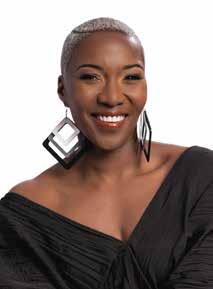
As part of Jacaranda FM’s regional line-up, which broadcasts across Limpopo and Mpumalanga, Sascha van Gelder is deeply connected to the heartbeat of her community. She’s the voice that brings local stories, events and voices to life, creating a strong sense of place for her listeners. Van Gelder’s on-air presence is reassuring and uplifting, making her a trusted friend to many. With her commitment to local engagement, she embodies Jacaranda FM’s promise to be there for its listeners, wherever they are.


With two decades in broadcasting, Danny Painter brings her warmth, passion and a genuine love for music to two different shows on Jacaranda FM. On ‘Love Songs’, she creates the perfect soundtrack for winding down in the evening. Come Saturday morning, she switches gears to host the ‘CTM Top 40’, bringing high-energy, chart-topping hits, and her infectious enthusiasm for the music scene. Painter is also a fierce champion of local talent, having conducted over 100 in-depth interviews with South African artists in 2024 alone. Born and raised in Brakpan, she wears her roots proudly, and uses her platform to celebrate homegrown and

From winning a radio talent search to becoming a beloved regional presenter, Manani Botes’ rise in broadcasting is as inspiring as it is impressive. Recently crowned Mrs Limpopo Province 2024 and currently a finalist in the 2025 Mrs South Africa pageant, Botes has balanced her role as a presenter with a deep commitment to community upliftment. Her success in pageantry and broadcasting reflects her confidence, work ethic and determination to represent Limpopo with pride. Listen to these powerful women on Jacaranda FM via 94.2 FM, the Jacaranda FM app, or stream online at www.jacarandafm.com This is sponsored content

Nthabeleng Nhlapo, commercial manager at Jacaranda FM, writes that in the digital age, radio isn’t just surviving; it’s thriving, and still getting people to do something, right now, in the moment. That’s a power worth tuning into.
In a world where content streams endlessly across screens, it’s tempting to think radio has been eclipsed by digital media. Yet, despite the noise, radio continues to cut through as one of the most trusted, action-driving channels available to marketers today. In a fragmented digital landscape, radio’s ability to inspire immediate, measurable action is more relevant than ever.
Radio has a superpower that digital display ads can’t replicate; it lives in the listener’s imagination. This ‘theatre-of-the-mind’ effect is fuelled by voice, tone and storytelling that allow audiences to co-create the message in their heads. The result is a personal, intimate connection that’s far more persuasive than a static banner. Whether a morning host’s laughter over a relatable story, a DJ’s heartfelt endorsement of a local brand or a clever ad jingle, radio connects on an emotional level. And, emotions drive action, from clicking a link to making a purchase.
In South Africa, radio is thriving. The Broadcast Research Council of South Africa consistently reports that over 80% of South Africans tune in weekly, a reach unmatched by most other media. Our unique market conditions make this possible: radio is free-to-access and data-free, a significant advantage in a country where

mobile data costs remain a barrier to purely online campaigns. It is a truly mobile medium, travelling with its audience in taxis, buses, private cars, kitchens, construction sites and shops. With broadcasts in 11 official languages, radio connects across cultural and linguistic divides. These qualities make it a powerful bridge between offline experiences and online action.
For decades, marketers were taught to think in terms of the marketing funnel, a neat, linear journey from awareness to consideration to purchase. However, consumer behaviour has changed. Today, people can join the brand conversation at any stage, return multiple times and take action in unpredictable ways. Leading brands are now replacing the funnel with the infinite loop, a continuous cycle where audiences move fluidly between awareness, engagement and conversion, with every interaction feeding back into the next.
Radio is uniquely positioned to anchor this loop. On-air personalities are the original influencers, building loyal communities, sparking conversations

and shaping opinions long before social media made it fashionable. When brands include radio in their strategy, they’re not just buying mass reach; they’re investing in the trust, authenticity and authority of the personality behind the mic. When radio is paired with digital, campaigns live beyond FM. A message that starts on air can drive clicks, shares and conversations online, creating a self-sustaining loop that keeps the brand top of mind long after the initial broadcast.
Some underestimate radio because they assume listeners aren’t giving it their full attention, but that’s the advantage. Radio accompanies everyday life, embedding brand messages into routines. When a trusted voice delivers a recommendation, it feels personal, which is why radio campaigns often deliver a higher return on adspend than TV or purely digital formats. When this trust is amplified through an infinite loop approach, action doesn’t stop at the first conversion; it fuels ongoing engagement.
Radio is not ‘old school’; it’s original school. It was the first medium to make people feel part of a community without being in the same room. Radio offers something increasingly rare: guaranteed reach, trusted voices and a proven ability to drive real-world behaviour.
If you want your audience to act, click, visit, buy or change a habit, radio should be at the centre of your strategy. Let radio’s original influencers spark the connection, then let digital keep it alive. This is sponsored content
CONTACT INFORMATION: Telephone: 011 063 5700
Email: info@jacarandafm.com Website: www.jacarandafm.com
INDEPENDENT INDUSTRY INTELLIGENCE

The Media magazine’s October 2025 issue celebrates the work of media owners and media agencies in South Africa, recognising the changes in and evolution of the industry.
As always, our content covers everything from publishing to platforms, advertising, marketing, social media, broadcasting, media research, creative media to advertising and marketing technology.

The MOST Awards, launched in 2009, are back in 2025 after a year’s breather to refresh and reassess the awards and their special place in the media market.
The Media’s October issue offers an excellent opportunity to share space with the who’s who of the media industry.

